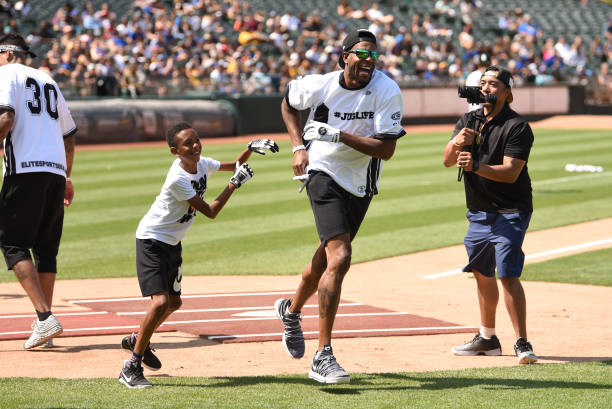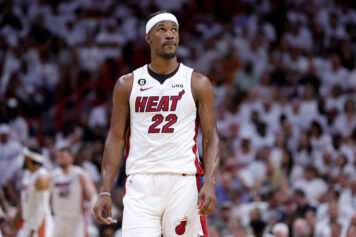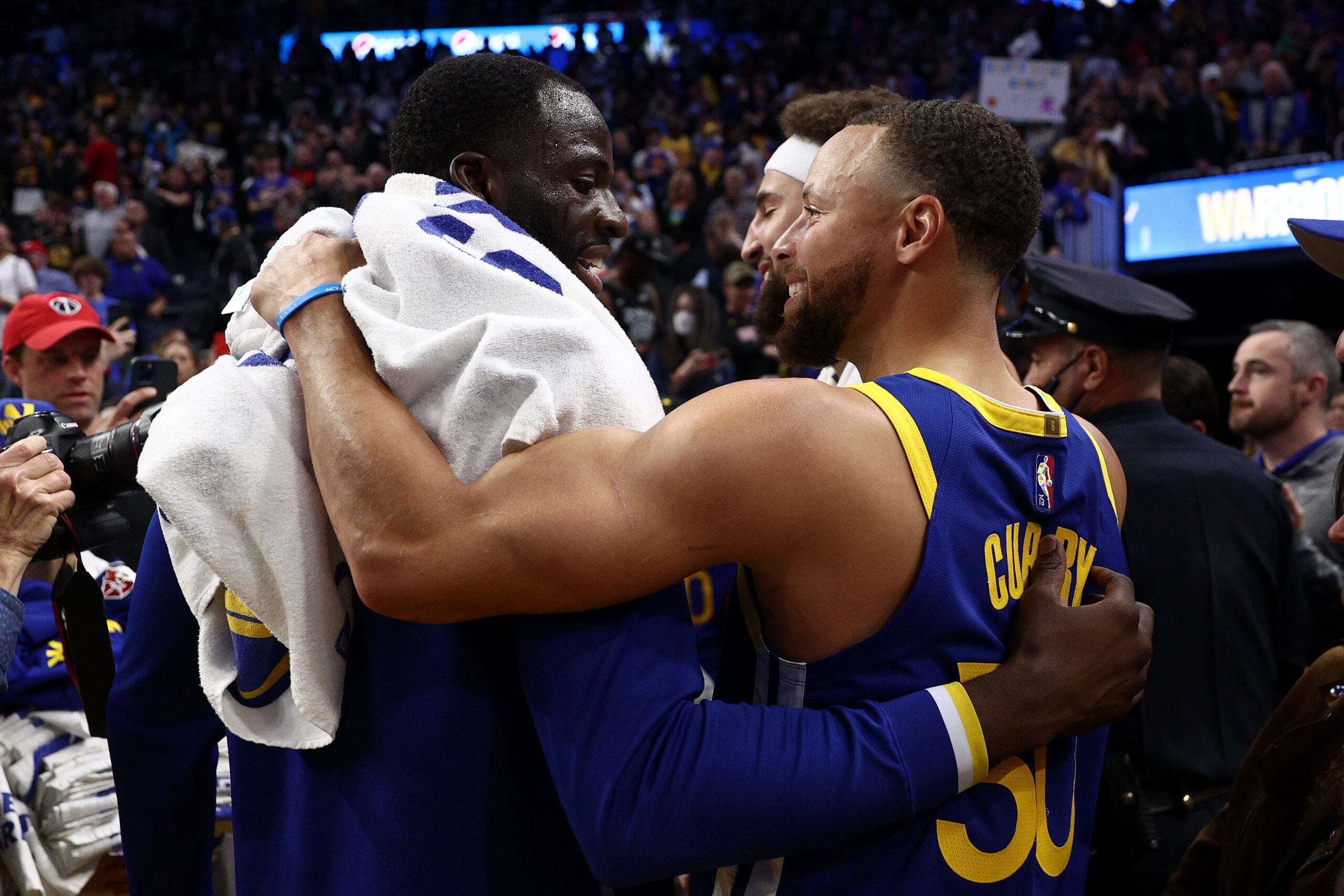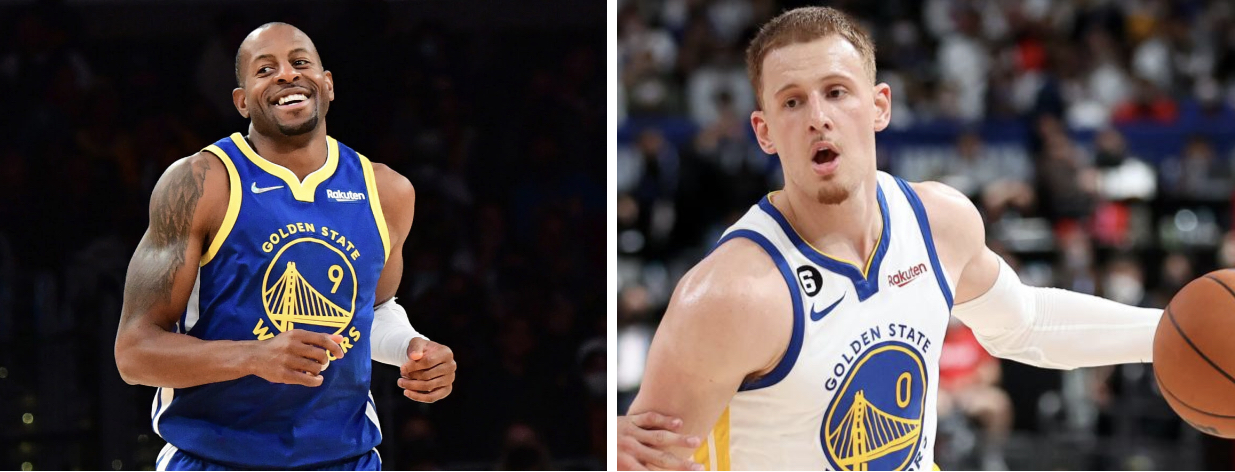As we see more and more international players rising up the ranks and filling roster spots at the college and pro level that used to go to American born and bred athletes, theories about the decline of youth basketball and youth sports as a whole start to move to the center stage.

Despite the push for athlete compensation and the attack on the NCAA as a governing agent of college athletics and the pushback against predatory agents and boosters and how they corrupt the culture of team sports, NIL money has become most important for top recruits.
As these dynamics take place, according to many former NBA players, there’s been a corrosion of certain team and developmental skills that foster success, hard work and maturity.
2015 NBA Finals MVP Is Against Today’s Youth Basketball Culture
Andre Iguodala joins the growing list of former players criticizing the culture of youth basketball today, insisting the focus has shifted from the game to the glamour of the cameras.
Iggy, a four-time champion, believes that today’s high school players are too focused and dependent on achieving highlights to acquire social media fame, rather than properly developing the necessary skill set to excel at a professional level.
“So the kids are under the basket, kids are dunking and pointing at all the cameras, and I’m like this is becoming the problem because it’s not about the competition anymore,” Iguodala said in the latest episode of his podcast, “Point Forward.”
Social Media Is Wrecking The Game
Social media has changed the world quicker than many of us expected, and Iguodala said on his podcast that he has noticed the obsession with it has stunted the growth of high school players. It struck him while he was watching his son’s game.
No stranger to the camera and media scrutiny. He won the 2015 NBA Finals MVP on a team with Steph Curry, Klay Thompson and Draymond Green.
The amount of photographers and videographers around the court as his son played was still a bit shocking, Iggy says.
Iggy reportedly recalls being surprised after talking to one photographer who was being paid to compile highlights of these high schoolers.
“He said, ‘Look, man, it doesn’t matter what team you play for, you get on the team, and you put him in a circuit, he only needs to make two shots a game, and you can put a whole mixtape together, and that’s how you get to college. Then you can ride the wave off of your mixtape to the league,’” Iguodala said.
Mixtapes Are Not A New Thing and Are Necessary In Today’s Recruiting Landscape
It’s actually not that simple and photographers and videographers filming to compile personal mixtapes for kids to use in the recruiting process is not uncommon anymore.
The recruiting game is much different now and every kid doesn’t have an NBA father with deep pockets and deeper connections just laying in the cut. So we will excuse him for that, but he’s not way off when pointing out how this click culture has hurt skills development.
Times have changed, and when new ideas and implementations and attitudes start to seep into the fabric of the game at the highest level, and NBA All-Star Games become laughingstocks to the majority of the fans and media, then everyone from the commissioner to the former player to the daily sports talk show host has something to say.
Iguodala Says Focus On Flashy Highlights Kills Development
The monster has created itself. ESPN highlights, Gatorade and Nike commercials and now, all out and legal pay-for-play, along with the self-obsessed culture of Twitter, Facebook, Instagram, Snapchat, you name it, has created an environment, says Iguodala, where kids are no longer encouraged as young players to play the right way. Be students of the game, rather than actors for the camera.
Legendary Maryland women’s hoops coach Brenda Frese blames the parents for killing the youth sports experience and fostering this kind of self-centered, clout-chasing behavior.
According to Iggy, it’s deeper than unruly parents. When players get the fundamentals right and make the unflashy moves those qualities don’t appear in the highlights, which devalues them as basketball players.
NBA commissioner Adam Silver said during NBA All-Star week that it’s essential for these development programs to go back to focusing on practice and honing their skill sets instead of letting them compete against each other all the time. His comments began as a shot at the All-Star Game, but inevitably he connected it to the culture of youth sports in America.
Former NBA Player Jason Richardson Agrees With Iggy
Former NBA player Jason Richardson backed up Silver’s comments.
The 14-year NBA vet said there seems to be a drastic change in how basketball development is being executed in the United States, to the point that programs outside of the United States are already miles ahead compared to them.
Richardson blames the decline of youth development in the U.S. on four factors. “Grassroots coaches, directors offended by Adam Silver’s comments yet don’t see how they’re part of the problem. Politics, controlled narratives, social media, and $$$ is what’s killing youth basketball. Can’t keep celebrating individual play and low basketball IQ. Develop your players!” Richardson implored via X.
So we get it. The entire culture is jacked, and we are losing ground and basketball focus being victims of our own chaotic greed.
What the U.S. is going to do to get back on the right track is where the focus should reside. Not blasting the people who are dedicating their time to the young athletes, because right now it seems to be getting worse and worse. Many of the things that we valued in an athlete are being replaced with the fluff.
It’s not all athletes. Some will rise above the lack of fundamentals and usher in a new era of basketball just as captivating as the last to the generation it serves. It’s also not just the product on the court that troubles former NBA players like Iguodala. It’s the concept of team, as a framework for individual success, which enhances the overall game. As players move up the levels, they have to be chameleons in how they can adjust their game to fit certain roles. That understanding has to be taught at an early age.



